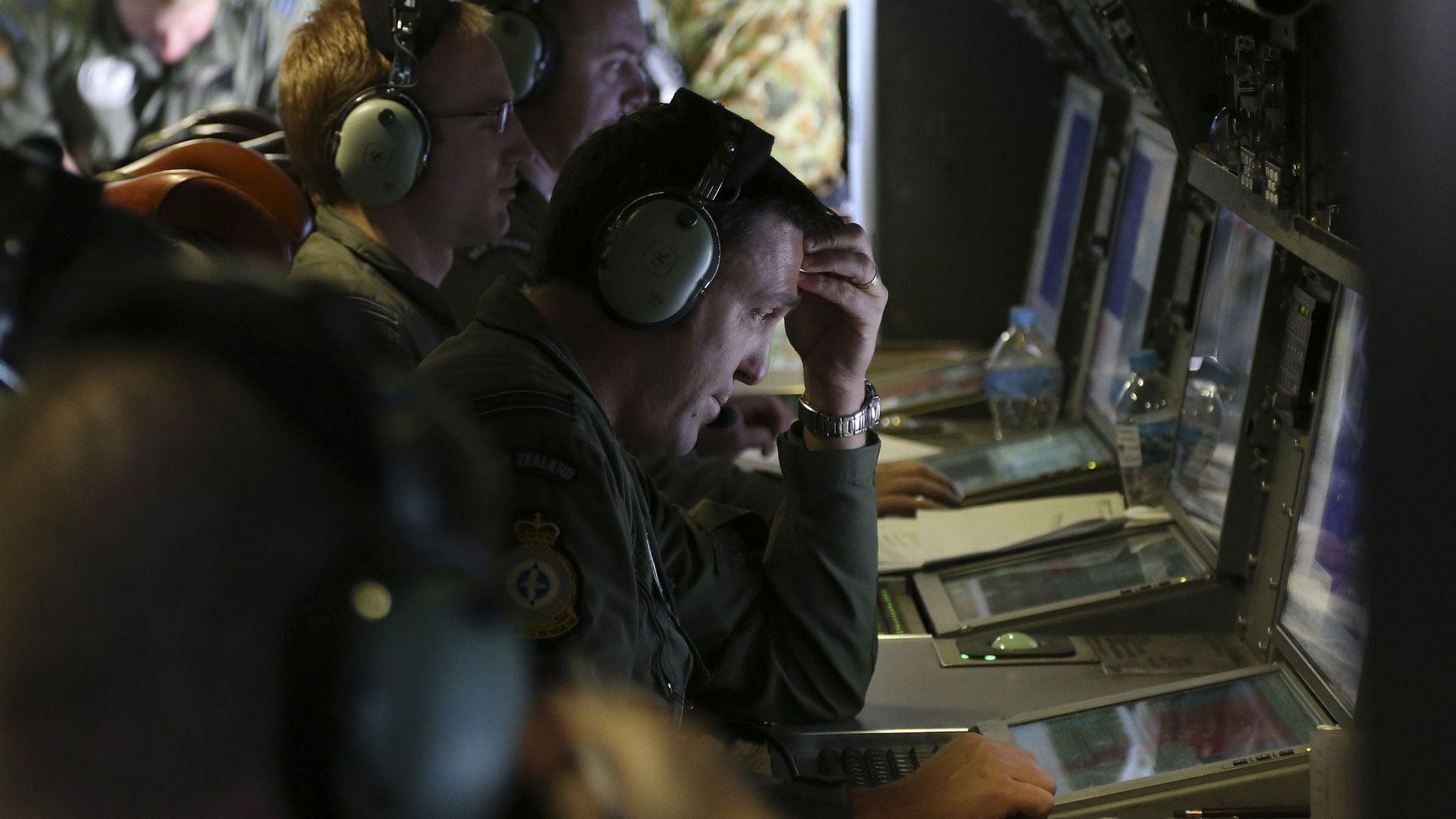Maybe the search for the Malaysian Airlines plane needed a chief data officer
The search for an airplane lost on a 2,500-mile international journey requires consolidating information from many organizations, both public and private, from all over the world. It involves analyzing vast amounts of radar, sonar, and satellite data, coming from many diverse sources, including military bases, air traffic controllers, naval ships, and other airplanes.


The search for an airplane lost on a 2,500-mile international journey requires consolidating information from many organizations, both public and private, from all over the world. It involves analyzing vast amounts of radar, sonar, and satellite data, coming from many diverse sources, including military bases, air traffic controllers, naval ships, and other airplanes.
What if the authorities investigating the missing plane had been prepared to manage big data the way many corporations do? What if the investigation had an executive level position responsible for collecting and analyzing all of the dispersed and diverse data that were available and potentially relevant to the search? What if a multinational chief data officer (CDO) had been in place to manage all of the information that was available?
Companies have recognized the value of just such a position for some time. The first reported chief data officer was established in 2003 by Capital One Financial Corp., Yahoo, and Microsoft Germany were early adopters. In little over a decade, hundreds of organizations, including US federal and state agencies, have created chief data officer positions, although the jobs often are given different titles. In time, the initials CDO may become as familiar as CEO, CFO, and CIO.
Driving the trend is the phenomenon of big data—the explosion of information made possible by the great advances that we have seen in recent years in communications, computers, and storage.
For over a decade, I have been part of a team of researchers, co-led by Richard Wang, in the MIT Information Quality program, studying the CDO position and how it has evolved. We surveyed more than 100 organizations that have hired or are considering hiring CDOs. We have prepared detailed case studies of a dozen of these organizations.
We found that CDOs fit different profiles in different organizations. CDOs can focus on internal business processes or on relations with outside stakeholders. They can deal with data from traditional sources or new and more diverse big data. And they can focus on improving existing functions in an organization or on developing new business strategies.
For example, in a credit-card company that we studied, the CDO oversaw internal teams that analyzed data about customer activities and attitudes. The company used the analysis to devise enterprise-wide policies to improve risk management and fraud detection. In another financial institution that we examined, the CDO used multiple sources of consumer-generated data to develop products for clients in the broader financial industry.
We developed a framework for understanding the possible roles a CDO can play, as a well as a methodology for determining what roles are best suited to particular organizations. To guide companies interested in establishing the position, we developed a three-dimensional model identifying eight possible roles, along with a questionnaire companies can use to determine the optimal role a CDO can play in their organizations.
Establishing a CDO position means adopting a new approach to data analysis. Organizations traditionally assigned most data matters to their information technology departments. When data problems arose, a small group within IT usually was assigned to resolve them. With a CDO in place, data policies and practices are elevated to enterprise level responsibilities. Executive rank CDOs can guide how organizations use data as part of their broader business strategy.
We will never know whether having a CDO would have hastened significantly the search for the missing jet. But we do know that CDOs in business give companies a distinct advantage. A survey by the Economist Intelligence Unit found in 2011 that firms with a CDO had better performance than similar companies without the position.
We can be fairly certain that governments overseeing the MH370 search —overwhelmed with information, besieged by grieving families, and buffeted by international and domestic politics—could have used a highly skilled leader who had prepared them to make sense of the all of the data coming at them.